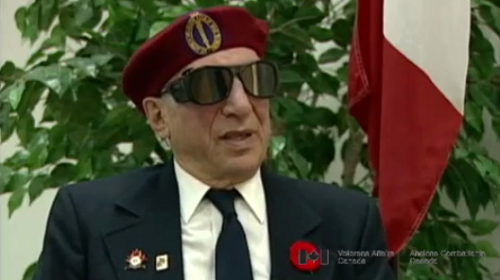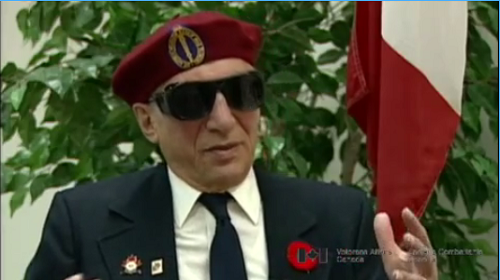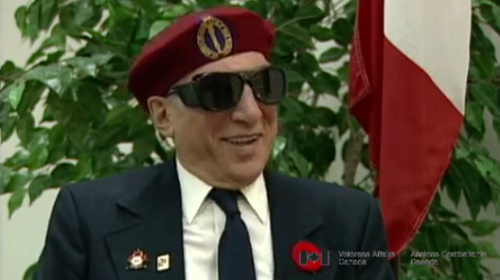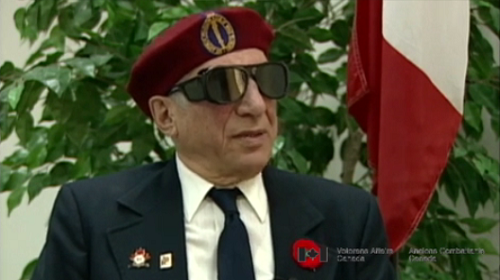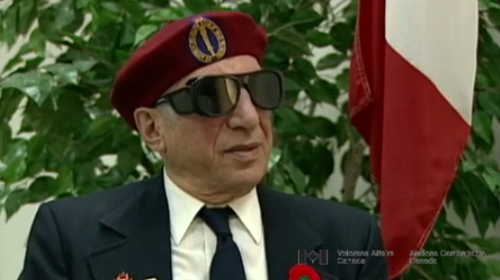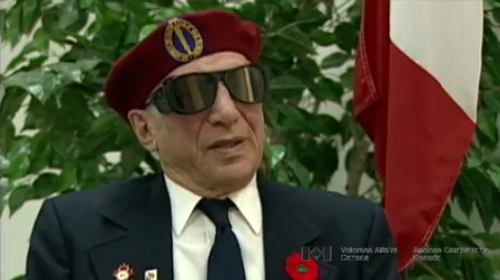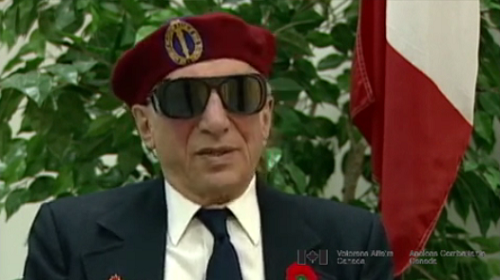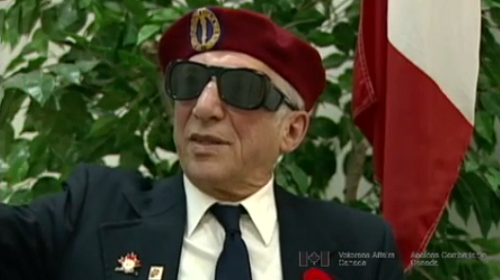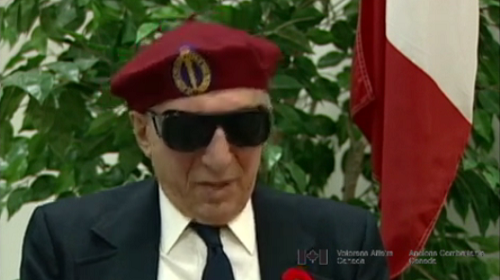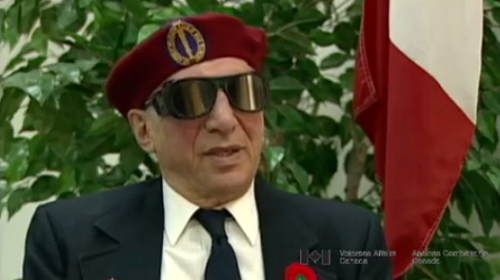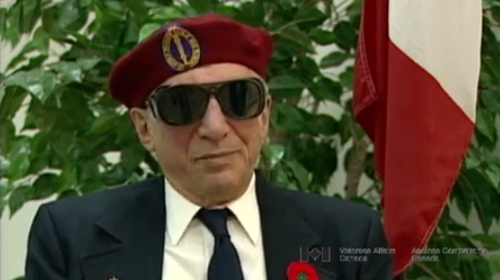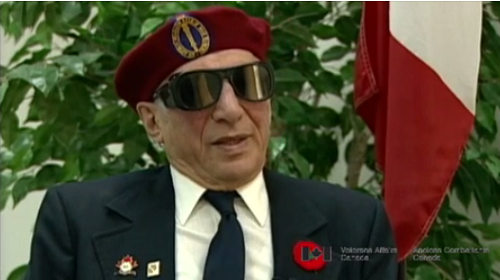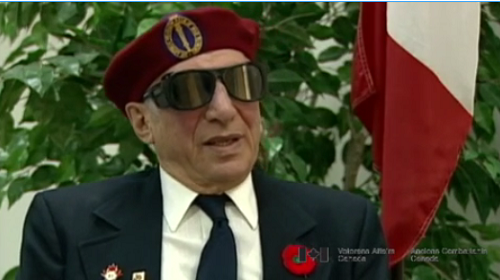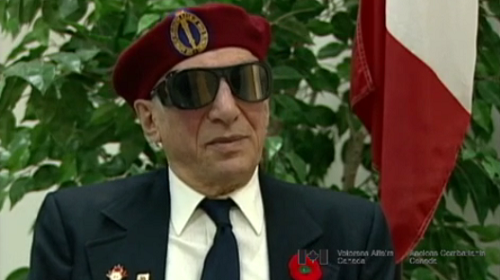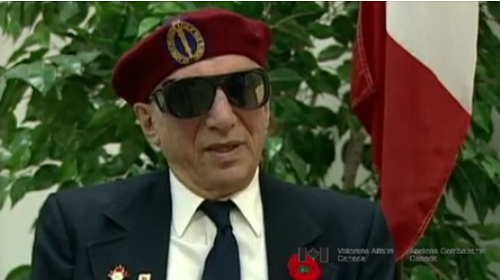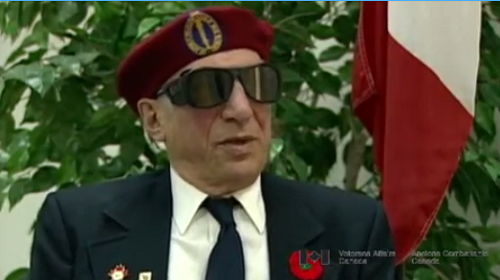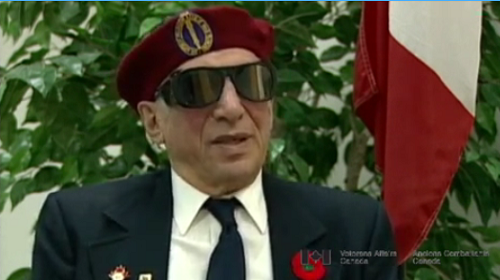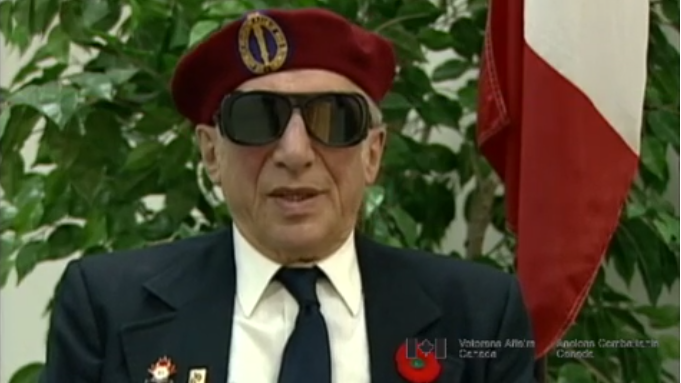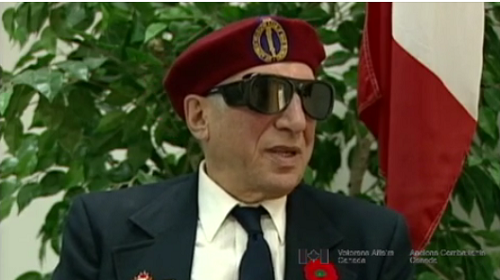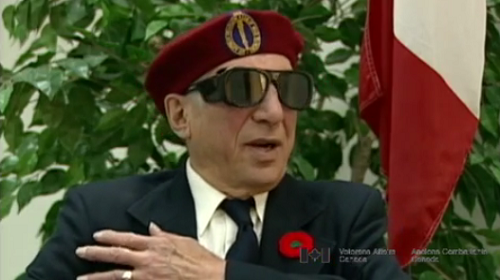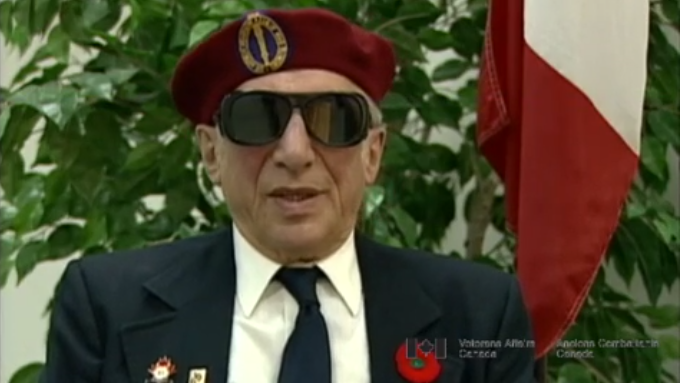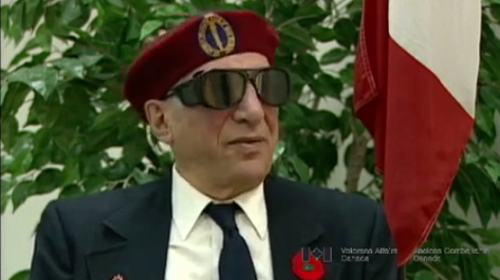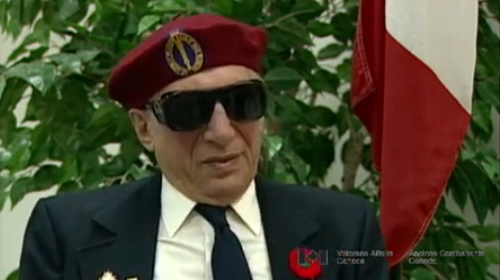Beri Beri
Heroes Remember
Beri Beri
Transcript
Description
Mr. Harrison describes his experience with both dry and wet beri beri. Although he suffered with 'electric feet' from the dry beri beri, his worst experience was with wet beri beri, where the swelling from fluid in his lower limbs caused his toes to split open. He thanks his doctor for one night of morphine induced sleep.
George Harrison
George Harrison was born on April 4, 1920 in Winnipeg, Manitoba and was youngest of three children. His father died shortly after his birth, forcing his mother to place him and his siblings in an orphanage, where he was at times badly beaten. Learning this, his mother took her children back home. After completing grade 9, Mr. Harrison went to work to help support his family. Eventually, he gained employment with CPR Telegraph. On September 13, 1939, Mr. Harrison enlisted with Winnipeg Grenadiers, becoming a specialist on the Vickers machine gun. During the battle of Hong Kong, Mr. Harrison was made a sergeant, and was involved in deadly fighting. Along with the general misery and persecution suffered by all of the POWs, Mr. Harrison faced down both blindness and potential amputation of his toes.
Meta Data
- Medium:
- Video
- Owner:
- Veterans Affairs Canada
- Duration:
- 3:13
- Person Interviewed:
- George Harrison
- War, Conflict or Mission:
- Second World War
- Location/Theatre:
- Hong Kong
- Battle/Campaign:
- Hong Kong
- Branch:
- Army
- Units/Ship:
- Winnipeg Grenadiers
- Rank:
- Sergeant
- Occupation:
- Section Leader
Related Videos
- Date modified:



